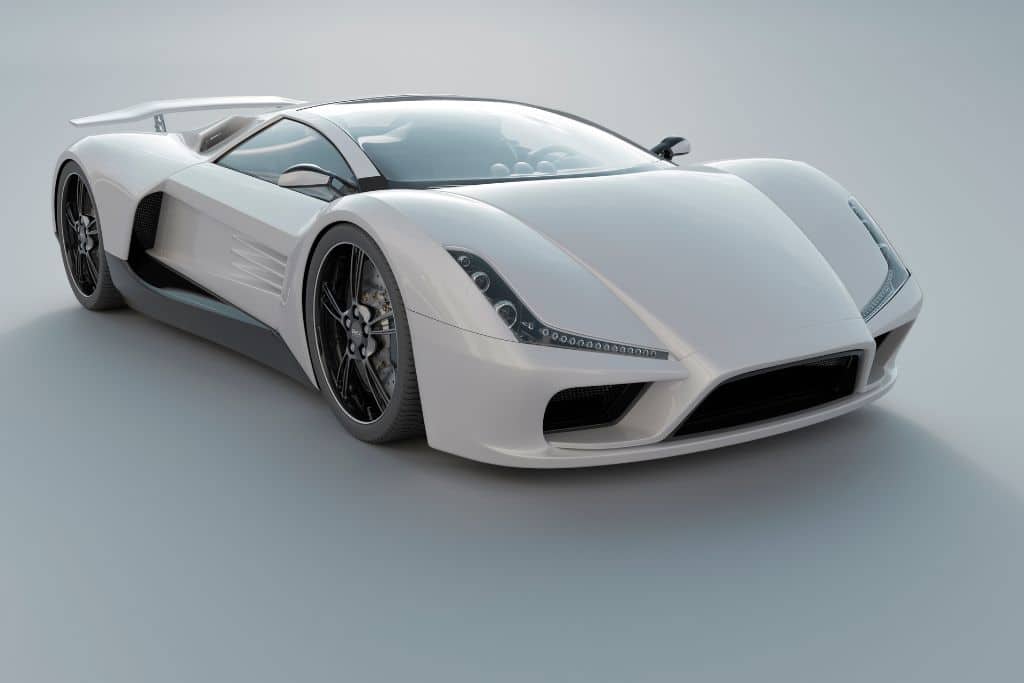Climate goals and new environmental policies have increased pressure on car manufacturers to cease the production of petrol and diesel cars and sparked a race to electrify supercars – high-performance sports cars that can cost up to US$1.2 million. Now more than ever, car companies are racing against the clock to shift design and production streams in order to electrify their engines. Where does the electric supercar industry stand and what’s the future of fossil fuel vehicles?
—
Net-Zero Strategies Targeting Fossil Fuel Cars
In recent years, several countries agreed to ban fossil fuel cars. For example, the EU saw major gains in the European Green Deal as member countries agreed to ban fossil fuel cars by 2035. In 2020, the UK also took a historic step towards net-zero by announcing that sales of new petrol and diesel cars will end by 2030.
Though the ban has been praised, some are not convinced that it will have a significant impact. For example, New Automotive – an independent transport research organisation – has claimed that a deadline of 2026 is required for the UK government will have to meet its carbon budget. In addition, the UK ban does not include hybrid cars; former Prime Minister Boris Johnson stated that new hybrid vehicles “that can drive a significant distance when no carbon is coming out of the tailpipe” can be sold until 2035. More recently, a historic High Court ruling in the UK found the government’s climate strategy “unlawful” as their Net Zero Strategy breaches the Climate Change Act. Now, the government has time until March 2023 to update it and deploy a strategy that is more feasible and effective.
Electric Supercars: Where Things Stand
In 2021 alone, the global market for supercars was estimated to be worth over US$15.8 billion – and with thousands of manufacturers, owners, and enthusiasts contributing to the debate, opinions on the race to electrify engines are varied.
However, when looking at the supercar industry, the heavyweights seem to be dragging their heels when it comes to electrifying their engines. Of the approximately 22,000 supercars or luxury Grand Touring (GT) cars sold last year, not one was fully electric. Household names like McLaren, Aston Martin, Ferrari, and Lamborghini have been slow to implement any kind of plans for upcoming electric supercars. For example, the McLaren P1 – a limited-production mid-engine plug-in hybrid sports car produced by British automobile manufacturer McLaren Automotive – is considered the first hybrid supercar in the world and although it was released almost nine years ago, a fully electric counterpart has not yet surfaced. Although hybrid cars are not going to be phased out as quickly as fossil fuel cars, the end goal of policymakers seems to be the electrification of all cars on the road – supercars included.
People who do not support the phase-out of fossil fuel electric supercars argue that they are not as damaging as typical cars because they are driven far less. Mat Rimac – founder of Croatian electric sports car company Rimac Automobili – said that “the environmental impact of these cars is so small, they are so small in number and they are hardly driven. You are basically selling pieces of art, and Europe is a world leader”.
Benjamin Stephan – a spokesperson for Greenpeace – reported that Italy has continually attempted to delay the phase-out and create loopholes to “keep making supercars for the super-rich”. Many stakeholders in the supercar industry are also expressing their growing concern for the environmental impacts of fossil fuel engines and are voicing their support for electric cars.
Some Formula 1 celebrities have also joined calls to electrify supercars. In 2020, Lewis Hamilton – one of F1’s most known faces – made headlines when he announced that he would be leaving his collection of supercars behind, and would only drive his electric vehicle. He also announced the creation of a new team to compete in Extreme E, an off-road race with electric SUVs in locations that have been damaged or affected by climate and environmental issues. F1 driver Nico Rosberg also publicly declared he supports the electrification of supercars: “Formula 1 has to go electric!” – the champion said. “The whole world is going electric so they can’t have a petrol engine. That would be weird.”
Despite celebrities’ support, it still seems that some companies are hesitant to make the big jump. As Lawrence Stroll – part-owner of the Aston Martin F1 Team – said: “We still have people who want the smell and the noise, and we are gradually on the way to getting to Electric Vehicle (EV), but we will continue offering both.”
The journey to the phase-out of fossil fuel cars is a hugely important, yet contentious one. When considering the amount of investment that goes into the supercars industry, it is not shocking to hear that many prioritise profits over the environment. With the shifting narratives of influential characters’ opinions, environmental policy changes, and manufacturers’ reluctance to release EVs en masse, the future of fossil fuel supercars remains unpredictable, while an exciting, yet ambiguous, future for electric supercars slowly approaches.
You might also like: Why Electric Cars Are Better for the Environment

















